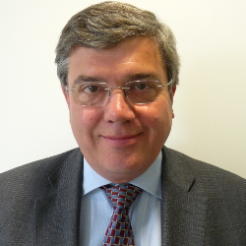A former senior police officer has stepped down from his role on the Charity Commission board after accepting a position as chief inspector of prisons.
Peter Clarke joined the regulator’s board in May 2013 after retiring from his role as head of the Metropolitan Police's Anti-Terrorism Branch and national co-ordinator of terrorist investigations.
On Monday, the Charity Commission’s chair, William Shawcross, said Clarke’s new role was “good news for the country” because of his “immense ability and experience”.
But he said it was unfortunate news for the Charity Commission.
“Peter has unrivalled experience and judgment,” Shawcross said. “His mastery of complex issues is astonishing. He has contributed enormously to our work in many different ways. We shall all miss him.”
Despite Clarke’s resignation, his new role has not yet been confirmed.
A Charity Commission spokesman said Clarke was nominated as chief inspector of prisons by Justice secretary Michael Gove but the final decision is currently under consideration and yet to be rubber stamped by the Justice Select Committee.
“At this stage I can’t confirm the exact timing of his departure,” the spokesman said. “The Cabinet Office will lead on the recruitment of his successor in line with the normal process once he has stepped down.”
The recruitment of the Charity Commission’s current board line-up in May 2013 received criticism from some in the sector.
NPC chief executive Dan Corry and chief executive of the Directory of Social Change, Debra Allcock Tyler, both took to Twitter to complain that only one member of the board - Claire Dove - had a background in the charity sector.
Allcock Tyler called for the government to remove powers of appointing the board from a government minister.
“It should be an independent panel,” she told Civil Society News at the time. “Or maybe even a voting process as this is such an important part of the charity sector.”
Peter Clarke steps down from Charity Commission board for role as chief inspector of prisons
24 Nov 2015
News
A former senior police officer has stepped down from his role on the Charity Commission board after accepting a position as chief inspector of prisons.

Peter Clarke







